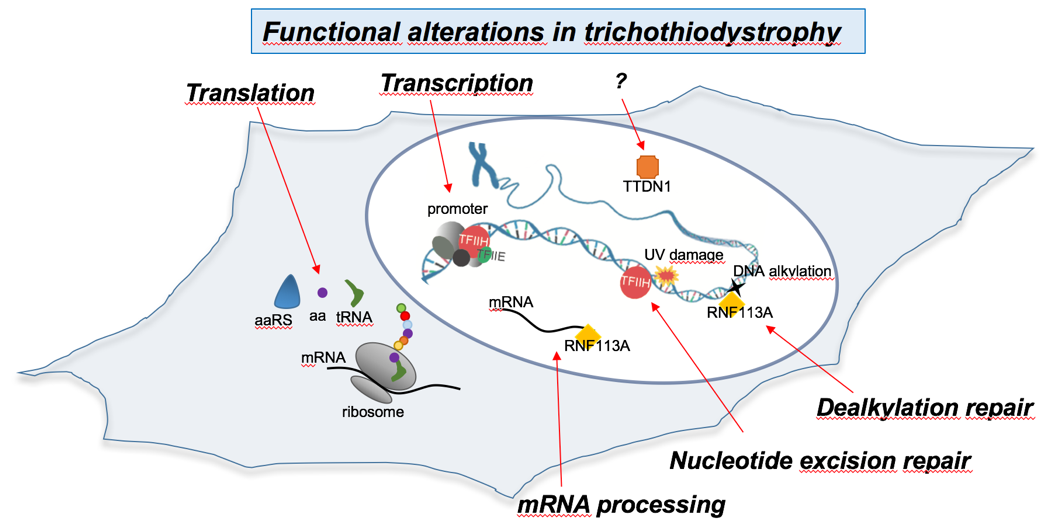Identification of new disease-genes for NER syndromes and related disorders
NER syndromes display a remarkable phenotypic complexity that is underlined by an intricate and partially overlapping genetic scenario. Twelve NER genes have been so far implicated in human disease. Our group greatly contributed to unravel the genetic basis and functional alterations in trichothiodystrophy (TTD). The photosensitive form of TTD (PS-TTD) is caused by alterations in genes encoding the XPD, XPB and TTDA subunits of the NER multi-protein complex and transcription factor IIH (TFIIH). Investigations in patient cells allowed us to highlight the relevance of specific transcription deregulations in TTD outcome. We also found that mutations in the beta subunit of the general transcription factor TFIIE are responsible for rare cases of NER-proficient non-photosensitive TTD (NPS-TTD), further supporting the idea that transcription impairments play a key role in TTD. Few NPS-TTD cases have been found mutated in the RNF113A gene, whose product participates to mRNA processing and/or signalling of alkylation damage, whereas 10% of patients carry mutations in the still uncharacterized MPLKIP/TTDN1 gene. Very recently, we contributed to the identification of aminoacyl-tRNA synthetases (aaRSs) as novel factors associated to NPS-TTD. AARs are essential enzymes in protein translation thus expanding the notion of TTD as transcription syndrome to the more general notion of gene expression perturbation syndrome. Nowadays, still many cases remain unsolved.

By applying the exome- and whole-genome sequencing technologies to the material in our unique patient’s cell collection, we are searching for additional TTD-related genes. We are also expanding our investigation to the search of new factors involved in other NER-related pathological conditions including Cockayne syndrome-like and xeroderma pigmentosum-like disorders.
Collaborations:
-Alan Lehmann (Genome Damage and Stability Centre, Brighton, UK)
-Tomoo Ogi (RIeM, Nagoya University, Japan)
-Wim Vermeulen (Erasmus MC, Rotterdam, NL)
-Kenneth Kraemer (NIH, Bethesda, USA).
